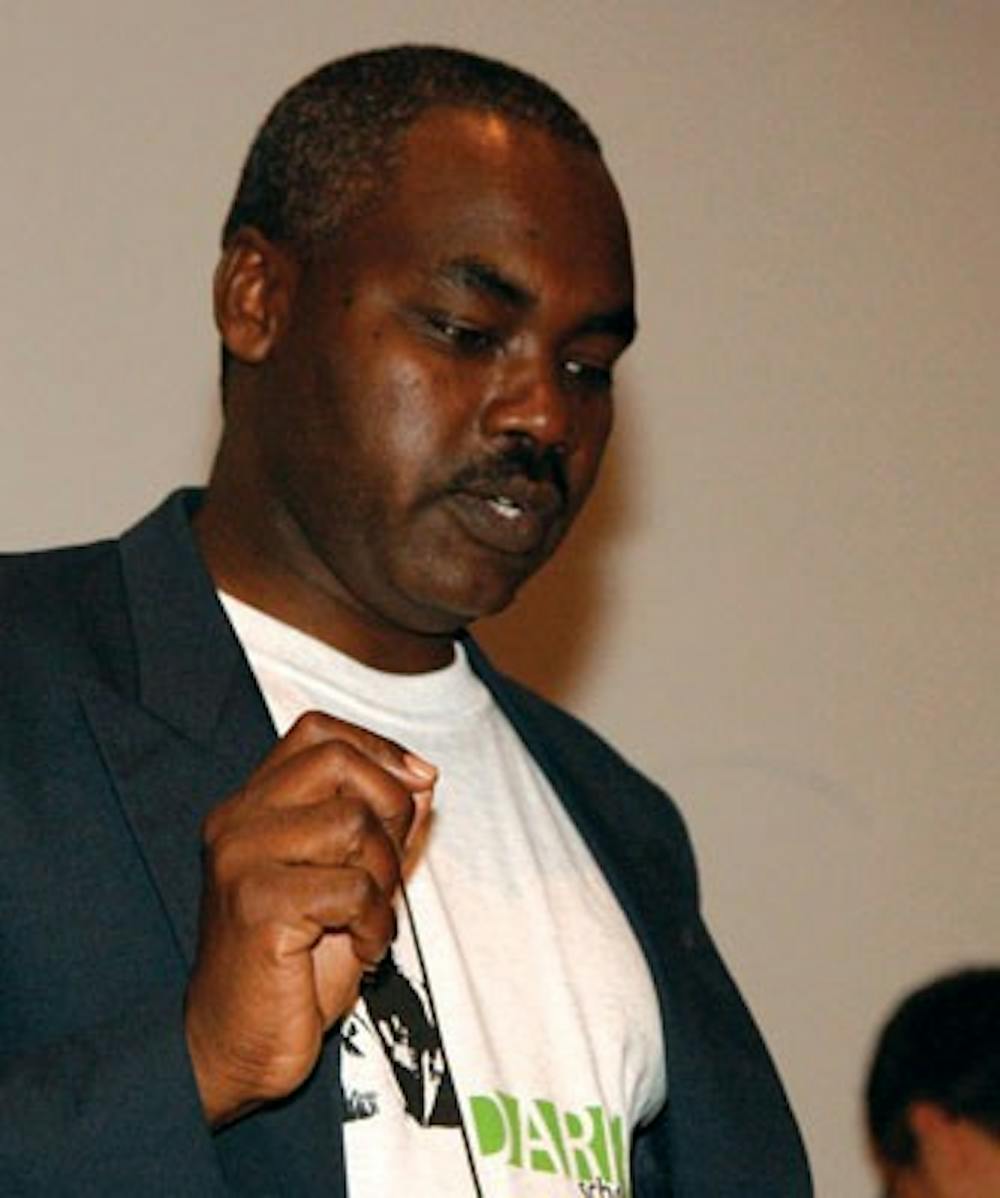At a lecture Tuesday evening in the Kelley School of Business, IU Students Taking Action Now: Darfur brought awareness about the genocide in Darfur to an audience of about two dozen by featuring two speakers heavily involved in aiding the human-rights situation there.\nSuliman Giddo, a Darfur native and the co-founder and president of the Darfur Peace and Development Organization, and aid worker Joe Johns shared insight into the situation in Darfur while outlining a concise historical timeline of the conflict.\nGiddo spoke at length about the identity problem in Darfur, which he said goes back to Sudan and not just Darfur.\n“It’s not only in Darfur, because there was a conflict between the North and South in Sudan,” Giddo said. “The North, they claim that they are Arab and Muslim, and the South are Christian at the same time (they are) African.”\nGiddo said those who consider themselves Arab were actually brainwashed into believing that. Giddo said identity is the most crucial problem in Sudan today because it has led to wars in almost every decade since the 1970s. \nGiddo also spoke about his organization’s plans for getting Darfur back on its feet. He stressed U.N. peacekeeping efforts and pressure on U.S. officials as methods for alleviating the problems. He said about 85 percent of the refugees in Darfur are women and children, and education and rape help would also improve the situation.\nJohns described the current situation in Darfur as “dire.”\n“I cannot believe the situation has not changed for the better,” Johns said. “Despite all the efforts set forth, we are in need of real change.”\nJohns served as an aid worker on two different occasions in Darfur. During his second journey, he said the situation had deteriorated so much that aid workers could not get their jobs done.\nJunior Naho Saito, an international-studies major, said the speakers did a good job explaining the conflict.\n“I wish we could get more people to be aware of the conflict in Darfur,” Saito said. “I guess people just don’t know about it. They think that it’s just their world, that it doesn’t have to do with us because it’s not in the United States.”\nGiddo and Johns offered a grim outlook on Darfur, but STAND Co-President Emily Roberts said things are looking up for Indiana involvement in the conflict. The Indiana House unanimously passed a divestment bill Feb. 26 that will pressure companies operating in Sudan to cease operations there.\n“Divestment is a relatively new thing that we’re taking on,” said Roberts, a sophomore. “This time, it passed the House unanimously, and now it’s going on to the Senate. We consider that a huge success.”\nRoberts said STAND appealed to IU about the University’s divestment.\n“We got an official statement saying that none of their funds are involved with those companies,” Roberts said.\nSTAND raised $3,000 to donate to the Genocide Intervention Network during the national event Darfur Fast. Roberts said STAND asked people to fast and donate money that would otherwise be spent on food. Participation spanned into the community, and Roberts said the organization raised a considerable amount.\nSTAND, which has grown since its first call-out meeting in fall 2005, will host a rally in Indianapolis tentatively scheduled for April 15.
Students Taking Action Now: Darfur bring speakers to promote change

Get stories like this in your inbox
Subscribe





